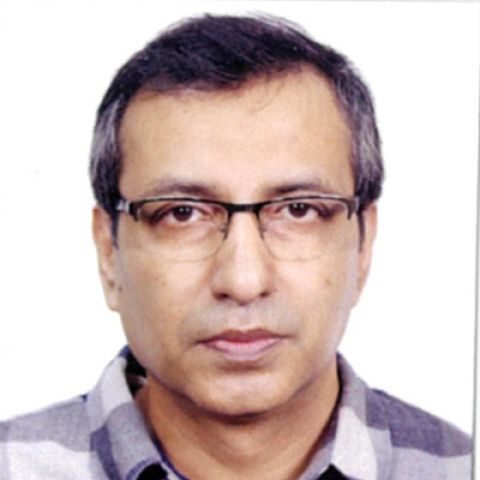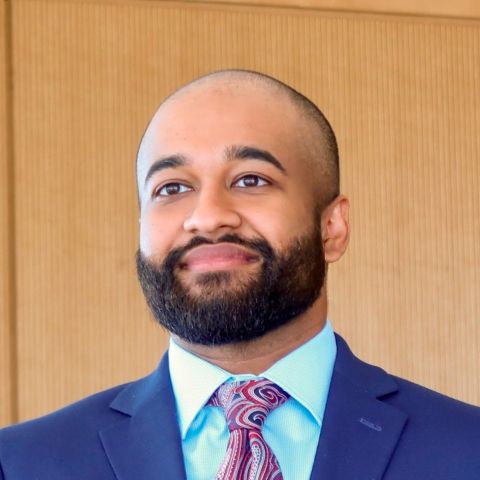South Asia Program
Peace, Security, and U.S. Presence in the World

September 4, 2025
12:00 pm
Clark Hall, 700
Please RSVP for the panel on Eventbrite.
Lunch will be served starting at 11:30 am.
U.S. foreign policies are changing dramatically, with profound implications for peace and security throughout the world. The administration of Donald J. Trump has broken with many decades of precedent by expressing sharp criticism of NATO and historical allies, while expressing admiration for historic adversaries such as Russia. U.S. support for Ukraine’s defense against Russia’s invasion has wavered, with Trump even suggesting that Ukraine rather than Russia is to blame for the conflict. U.S. humanitarian aid to many of the world’s most needy people has ended or been sharply reduced. Changes in migration policy are also placing many groups at heightened risk of political violence. The administration has bombed Iran’s nuclear facilities, acting in violation of international law and suggesting a preference for military action over diplomacy. And changes in trade policy, particularly with China, have the potential to reshape military capabilities and alliances around the world.
These changes raise several questions. Is the re-arming of Europe a necessary bulwark against an expansionist Russia, or a new arms race that encourages nuclear proliferation and increases the risk of war? Will the cancellation of humanitarian aid encourage other nations to increase their capacity, or simply leave the world’s most vulnerable people without hope? What other nations might step in to fill the vacuum left by the loss of such aid, and will these nations be more or less exploitative than the United States? How will changing U.S. policies affect regional security alliances, for example between Russia and China? This panel will provide perspectives on how recent changes to foreign policy are likely to affect issues of peace and security in several regions around the world.
Panelists
Jok Madut Jok, Professor of Anthropology, Syracuse University
Jok’s areas of specialization include security, governance, democracy and development in South Sudan and Sudan. He has also written extensively about gender, sexuality and reproductive health, humanitarian aid, ethnography of political violence, gender-based violence, and war and slavery and the politics of identity in South Sudan and Sudan. He is the author of Breaking Sudan: The Search for Peace (Oneworld Publications, 2017), Sudan: Race, Religion and Violence (One World Publication, 2007), War and Slavery in Sudan (University of Pennsylvania Press, 2001), and Militarization, Gender and Reproductive Health in South Sudan (Edwin Mellen Press, 1998). He also co-edited The Sudan Handbook (with J. Willis, J. Ryle and S. Baldo, James Currey, 2011). Before joining Maxwell he was visiting professor of anthropology at the University of Oxford and a Fellow of Linacre College. He also served in the government of South Sudan as undersecretary in the Ministry of Culture and Heritage, 2010-13. He is the founding director of the Sudd Institute, a public policy research center.
Kaija E. Schilde, Associate Professor of International Studies, Pardee School of Global Studies, Boston University
Professor Schilde’s research focuses on the political economy of security, with a particular emphasis on defense industry politics and the political development of the European Union. In July 2021 she was named Acting Director of BU’s Center for the Study of Europe and in January 2022 she received the Jean Monnet Chair in European Security and Defense. Her book, The Political Economy of European Security (Cambridge University Press, 2017) investigates the state-society relations between the EU and interest groups, with a particular focus on security and defense institutions, industries, and markets. Her research interests span multiple dimensions of the historical institutionalism of security organizations, including the causes and consequences of military spending; the relationship between spending, innovation, and capabilities; defense reform and force transformation; the politics of defense protectionism; and the international diffusion of internal and border security practices.
Zheng Wang, Professor at the School of Diplomacy and International Relations, Seton Hall University
Professor Wang’s research interests lie in three closely connected areas: (1) identity-based conflicts, nationalism, and the politics of historical memory; (2) peace and conflict management in East Asia, with a special focus on China’s rise and its impact on regional peace and security; (3) foreign-domestic linkages in Chinese politics and foreign relations. He is the author of Never Forget National Humiliation: Historical Memory in Chinese Politics and Foreign Relations (Columbia University Press, 2012), which received the International Studies Association’s Yale H. Ferguson Award in 2013. He is also author of Memory Politics, Identity and Conflict: Historical Memory as a Variable (Palgrave Macmillan, 2018) and editor of COVID-19 and U.S.-China Relations (Palgrave Macmillan, 2024). He is currently under contract with the Oxford University Press to write a book about the rise of nationalism and populism and the crises in the US-China relations. He is Director of the Center for Peace and Conflict Studies (CPCS) at Seton Hall University.
Diego Chaves-González, Senior Manager for Latin America and Caribbean Initiative, Migration Policy Institute
Chaves-González’s research focuses on forced displacement, legal pathways, integration, migration and development, and regional cooperation in migration management. He previously worked for the World Bank and the United Nations. While at the World Bank, he helped expand the scope of the Global Concessional Financing Facility (GCFF). He also co-authored the 2019, 2020, and 2021 GCFF annual reports, and helped coordinate the Secretary of the Multilateral Development Bank platform. While working for the United Nations, Mr. Chaves-González initiated a platform in Colombia to coordinate the work of UN agencies, NGOs, and their partners in response to migrant and refugee situations. He also helped develop a strategy to involve victims of conflict and internally displaced persons in the peace deal negotiations that ended Colombia’s civil war. Chaves-González also played an essential role as a presidential advisor in the registration and regularization of 500,000 migrants in Colombia and helped provide advice on how to structure similar initiatives in Costa Rica, Ecuador, and Peru. Since the start of the Venezuelan crisis, he has assisted Latin American governments in developing policies to integrate arriving migrants and refugees into receiving communities, accommodating both newcomer and local needs.
Host
Reppy Institute for Peace and Conflict Studies, part of the Einaudi Center for International Studies
Co-sponsors
Institute for European Studies, part of the Einaudi Center for International Studies
Migrations Program, part of the Mario Einaudi Center for International Studies, and the Mellon Foundation’s Just Futures Initiative
Additional Information
Program
Einaudi Center for International Studies
Reppy Institute for Peace and Conflict Studies
East Asia Program
Southeast Asia Program
Latin American and Caribbean Studies
Institute for African Development
Institute for European Studies
South Asia Program
Migrations Program
Southwest Asia and North Africa Program
15th Annual Tagore Lecture--Mixed Metaphors: Adventures in Translationland

September 19, 2025
4:30 pm
A. D. White House
Talk by Daisy Rockwell (Artist, writer, and Hindi-Urdu translator)
Translators love to use metaphors to capture the nature of their work, yet every metaphor seems to fall short, resulting in a great, unusable tangle of mixed metaphors. In this lecture, Daisy Rockwell will share some of her own handcrafted metaphors for translation and explore the many dimensions of the art.
Daisy Rockwell is an artist, writer, and Hindi-Urdu translator living in Vermont. She has translated numerous classic and contemporary literary works from Hindi and Urdu into English. Her translations have been awarded the International Booker Prize, the Warwick Prize for Women in Translation, the MLA Aldo and Jeanne Scaglione Prize for Translation of a Literary Work, the Wisconsin Prize for Poetry in Translation, and the Vani Foundation Distinguished Translator Award. Her translations have been honored with grants from the National Endowment for the Arts, the National Endowment for the Humanities, and PEN Translates. Her novel Alice Sees Ghosts, and Mixed Metaphors, her collection of poems about translation, are both forthcoming from Bloomsbury India in 2025 and 2026. Her memoir Our Friend, Art is forthcoming from Pushkin Press in 2027.
Books will be available for sale and signing after the lecture, from Odyssey Bookstore.
Cornell graduate students can register for two workshops with Daisy Rockwell on Thursday, September 18 and Friday, September 19.
The Rabindranath Tagore Lecture Series in Modern Indian Literature is made possible by a gift from the late Cornell Professor Emeritus Narahari Umanath Prabhu and his wife, Sumi Prabhu. Inspired by Rabindranath Tagore’s expansive imagination, unbounded by geopolitical boundaries, the series has regularly featured prominent writers from across South Asia and its diasporas.
Cosponsored by the Society for the Humanities and the Department of Literature in English
Additional Information
Program
Einaudi Center for International Studies
South Asia Program
As Trump Touts Tariff Deal, China Pitches Itself as Global Trade Leader

Eswar Prasad, SAP
Eswar Prasad, senior professor of international trade policy, comments on Beijing’s bid to be a champion of globalization.
Additional Information
Ronojoy Sen

Visiting Scholar
Dr. Ronojoy Sen is Senior Research Fellow at the Institute of South Asian Studies and the South Asian Studies Programme, National University of Singapore. He has worked for over a decade with leading Indian newspapers, most recently as an editor for The Times of India.
Additional Information
Video: Why Host an IIE-SRF Fellow?

Welcoming Scholars Under Threat
Past IIE-SRF fellow Sharif Hozoori (SAP) and Einaudi executive director Nishi Dhupa discuss the reciprocal impact of hosting fellows.
Additional Information
What Will Foreign Central Banks Do About Interest Rates?

Eswar Prasad, SAP
“There are many countries where inflation does seem to be coming under control, while economic growth looks pretty bleak,” says Eswar Prasad, senior professor of international trade policy.
Additional Information
Anurag Koyyada

Graduate Student, Reppy Fellow 2025-26
Anurag Koyyada is a JD candidate at Cornell Law School. He enjoys interpreting rules and designing technologies in defense, national security, and space contexts. Anurag is interested in how law, society, and technology interact in military and surveillance contexts. His work, as it relates to conflict and security, examines how emerging technologies both mirror and mold societal power, both constraining and enabling peace.
Additional Information
Program
Role
- Student
- PACS Current Graduate Fellow
- Graduate Student
Contact
Email: ak2542@cornell.edu
SAP Director Wins SUNY Chancellor’s Award for Excellence

Sarah Besky, SAP
The honor is presented annually, recognizing awardees on campuses across the SUNY system for their commitment to sustaining intellectual vibrancy, advancing the boundaries of knowledge, providing the highest quality of instruction and serving the public good.
Additional Information
New Cornell Tech to Evaluate Anemia to Be Used Across India

Saurabh Mehta, SAP
AnemiaPhone, a technology developed by a multidisciplinary team of Cornell researchers to accurately, quickly and cheaply assess iron deficiency, has been transferred to the Indian Council of Medical Research of the government of India for integration into its programs for anemia, women’s health, and maternal and child health throughout the country.
Additional Information
Cornell Atkinson Awards Catalyze Solutions in Food, Climate, Clean Energy

Sarosh Kuruvilla, SEAP/SAP
With support from the Cornell Atkinson Center, Sarosh Kuruvilla and Jason Judd are leading a project to test and estimate costs of factory-level heat interventions. “Climate change is already negatively impacting worker livelihoods and industry sustainability,” says Sarosh Kuruvilla, acting director of the Southeast Asia Program. “The global fashion industry urgently needs to adapt, to protect worker health and long-term earnings.”
